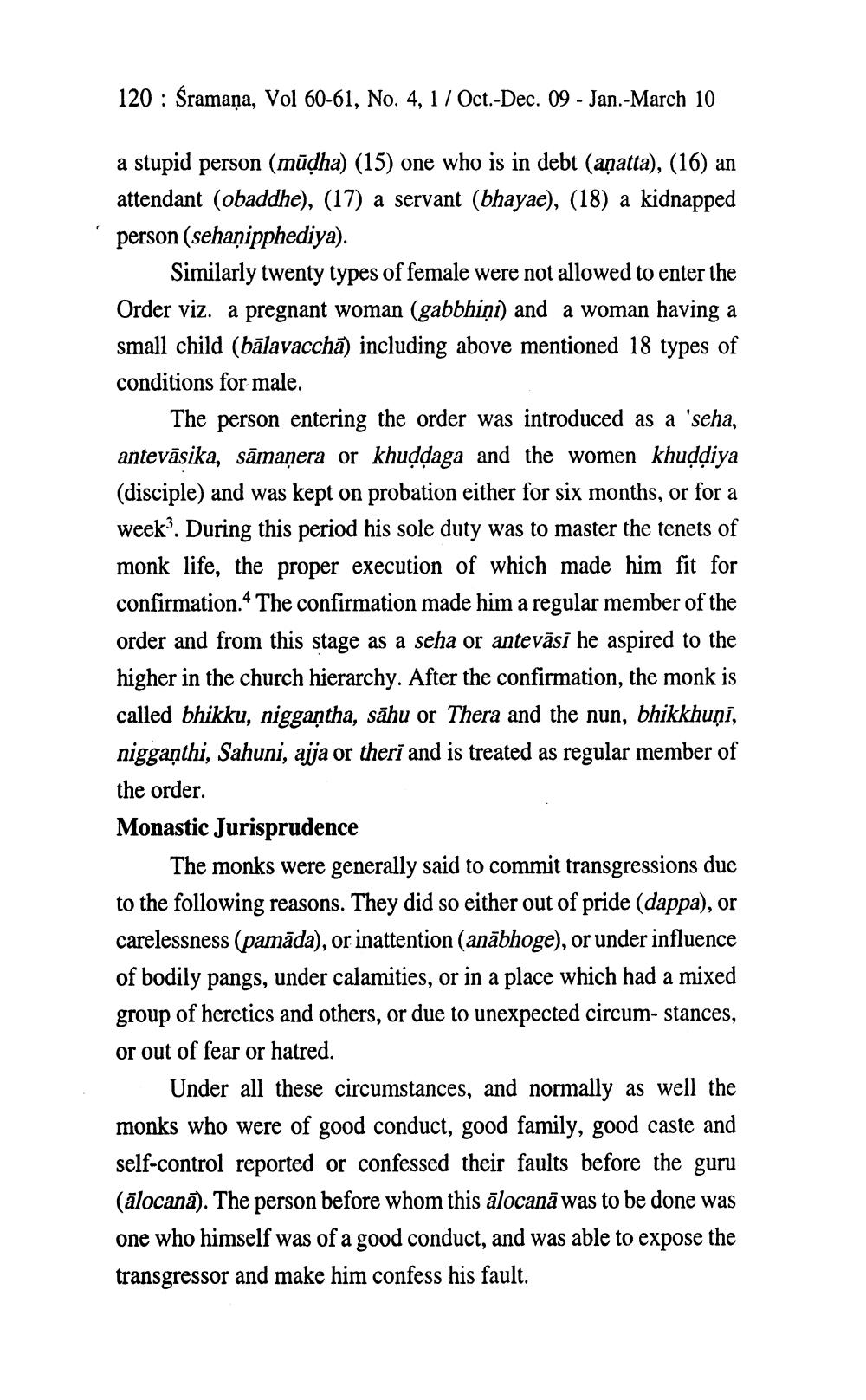________________
120 : Sramana, Vol 60-61, No. 4, 17 Oct.-Dec. 09 - Jan.-March 10
a stupid person (mūdha) (15) one who is in debt (aņatta), (16) an attendant (obaddhe), (17) a servant (bhayae), (18) a kidnapped person (sehaṇipphediya).
Similarly twenty types of female were not allowed to enter the Order viz. a pregnant woman (gabbhiņi) and a woman having a small child (bālavacchā) including above mentioned 18 types of conditions for male.
The person entering the order was introduced as a 'seha, antevāsika, sāmaņera or khuddaga and the women khuddiya (disciple) and was kept on probation either for six months, or for a week?. During this period his sole duty was to master the tenets of monk life, the proper execution of which made him fit for confirmation. The confirmation made him a regular member of the order and from this stage as a seha or antevāsi he aspired to the higher in the church hierarchy. After the confirmation, the monk is called bhikku, niggantha, sāhu or Thera and the nun, bhikkhuņi, nigganthi, Sahuni, ajja or theri and is treated as regular member of the order. Monastic Jurisprudence
The monks were generally said to commit transgressions due to the following reasons. They did so either out of pride (dappa), or carelessness (pamāda), or inattention (anābhoge), or under influence of bodily pangs, under calamities, or in a place which had a mixed group of heretics and others, or due to unexpected circum-stances, or out of fear or hatred.
Under all these circumstances, and normally as well the monks who were of good conduct, good family, good caste and self-control reported or confessed their faults before the guru (ālocanā). The person before whom this ālocanāwas to be done was one who himself was of a good conduct, and was able to expose the transgressor and make him confess his fault.




